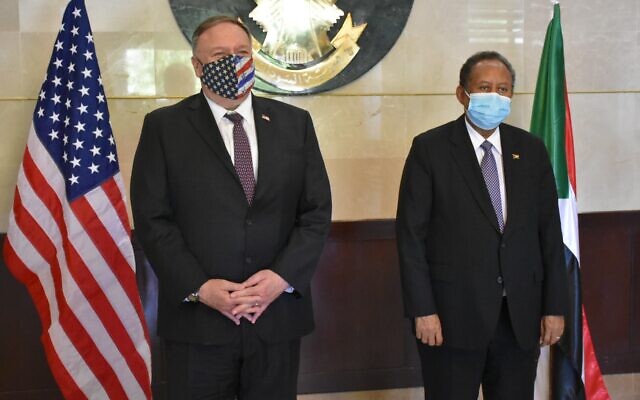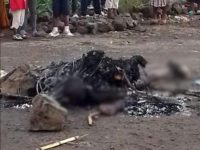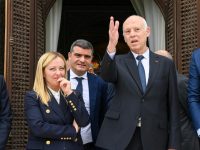In Bukavu, a woman protests in the streets against the authorities; the police shoot and…

Sudan, It’s Official. Trump Tweets: Khartoum Lifted from the State Sponsors of Terrorism
“Sudan is no longer a rogue state, I will remove it from the blacklist.” These are the words of US President Donald trump as he announced the decision to remove the African country from the State Sponsors of Terrorism list.
“New government of Sudan, which is making great progress, agreed to pay $335 MILLION to U.S. terror victims and families. Once deposited, I will lift Sudan from the State Sponsors of Terrorism list. At long last, JUSTICE for the American people and BIG step for Sudan!” Trump wrote in a tweet, asserting the successful diplomatic discussions led by Secretary of State Mike Pompeo’s who has been following the democratic process initiated by Sudan’s Prime Minister Abdalla Hamdok.
The intention is momentous, emphasizes EU foreign affairs high representative, Josep Borrell, adding, “It acknowledges the change in Sudan and Prime Minister Hamdok’s efforts.”
The announcement arrived after Treasury Secretary Stephen Mnuchin returned from Bahrein to cement agreements with the Arab state to recognize Israel. A path that has also been taken in small steps in Sudan with the encouragement of the United States government’s commitment to supporting the process of normalizing relations between Israel and the Arab world.
“Thank you so much, President Trump! We very much look forward to your official notification to Congress rescinding the designation of Sudan as a state-sponsor of terrorism, which has cost Sudan too much,” Hamdok responded on Twitter, thanking the President adding, “This Tweet and that notification are the strongest support to Sudan’s transition to democracy.”
Yesterday’s announcement reinforces claims that seek an agreement for Sudan to begin the process of normalizing relations with Israel on the wake of those signed by the Arab Amirates and Bahrein.
The process began months ago, urged on by Pompeo, and US diplomacy is staking on it heavily to give the President a further card to play on his race to the White House.
The United States’ decision to resume relations with the African country is a decisive change of pace, as shown by the US Secretary of State’s visit to Khartoum in August to offer US support for the damage caused by flooding in the ongoing devastating rainy season in Sudan.
The visit came before a letter sent to the Senate in mid-September asking for the removal of the country from the State Sponsors of Terrorism list and to give the Sudanese government another chance in the difficult transitional process after 30 years under a regime. But above all, the visit was a to make a breakthrough to normalize relations with Israel.
From the surprise meeting in Uganda in February 2019 between Benjamin Netanyahu and General Abdel Fattah Al Burhan, Chairman of Sudan’s Sovereign Council alongside the government, the White House began intense urging on Khartoum.
The negotiations were not without some friction due to the discontent of the Islamic wing, who is still nestled within the walls of Sudanese power and had urged the chairman to state that, “removal from the ‘blacklist’ was not connected to relations with the Israeli”
The transitional government led by Hamdok, an economist with a vast background in international experience, was established on 17 October 2019 after signing the Constitutional Declaration that followed the coup on 11 April 2019, removing President- Dictator Omar Hassan al-Bashir from office.
The transition is proceeding in pace with the restructuring of the economic and production system in the country, in addition to rewriting the Constitution and laws based on Sharia that represent the backbone of the Sudanese judiciary.
In recent months, the government has scrapped the laws of apostasy and sodomy, that carried the death sentence, and the ban on alcohol, and it repealed the discriminatory laws on women’s dress-code and rights.
Hamdok, whose term ends with the 2022 elections, also introduced the Financial Safety Net Project funded by the World Bank that approved a 2 billion dollar grant.
One of the key issues of the project, presented to the Ministry of Finance last spring, is to redirect subsidies for bread and fuel shortage, among the triggers that led to the fall of Bashir.
The Prime Minister, who served as Deputy Executive Secretary of the United Nations Economic Commission for Africa, wants to accompany the planned subsidies with direct cash transfers to the poor. This was met with disputes and new protests, but the process towards change in Sudan is not stopping.





